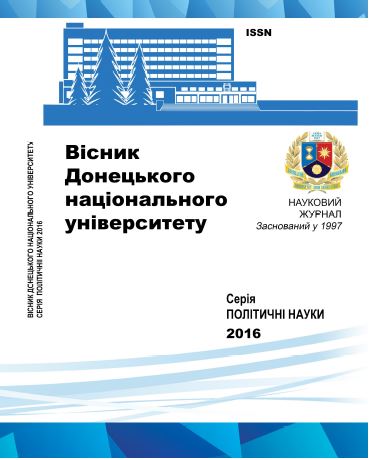Positive and negative consequences of transformations in the Baltic states and their entry to the EU.
Keywords:
European integration, Baltic states, transformations, modern political process, post-soviet spaceAbstract
It is shown, that transformations in the Baltic states and their entry to the EU and NATO present scientific and practical interest. Despite the most post-soviet countries were oriented to rapid organic plugging in the European integration process, however, it was succeeded only to the Baltic states. The positive and negative consequences of these processes were certained.
References
Носов, М. Г. ЕврАзЭС и интеграционный опыт ЕС / М. Г. Носов, А. Ю. Бочевер, Ю. А. Борко. — М.: Ин-т Европы, 2013. – 112 с.
Goods and services (BPM5): Trade balance indicators, annual, 1980–2013 [Electronic resource] // UNCTADESTAT. — Mode of access: <http://unctadstat.unctad.org/wds/TableViewer/tableView.aspx?ReportId=16418>.
Inflation, consumer prices (annual %) [Electronic resource] // The World Bank. — Mode of access: .
List of EU-members [Electronic resource] // European Union. — Mode of access: <http://europa.eu/about-eu/ countries/index_en.htm
Monthly bulletin of Latvian Statistics. June 2011. – Central Statistical Bureau of Latvia, Riga, 2011. – P. 109.

